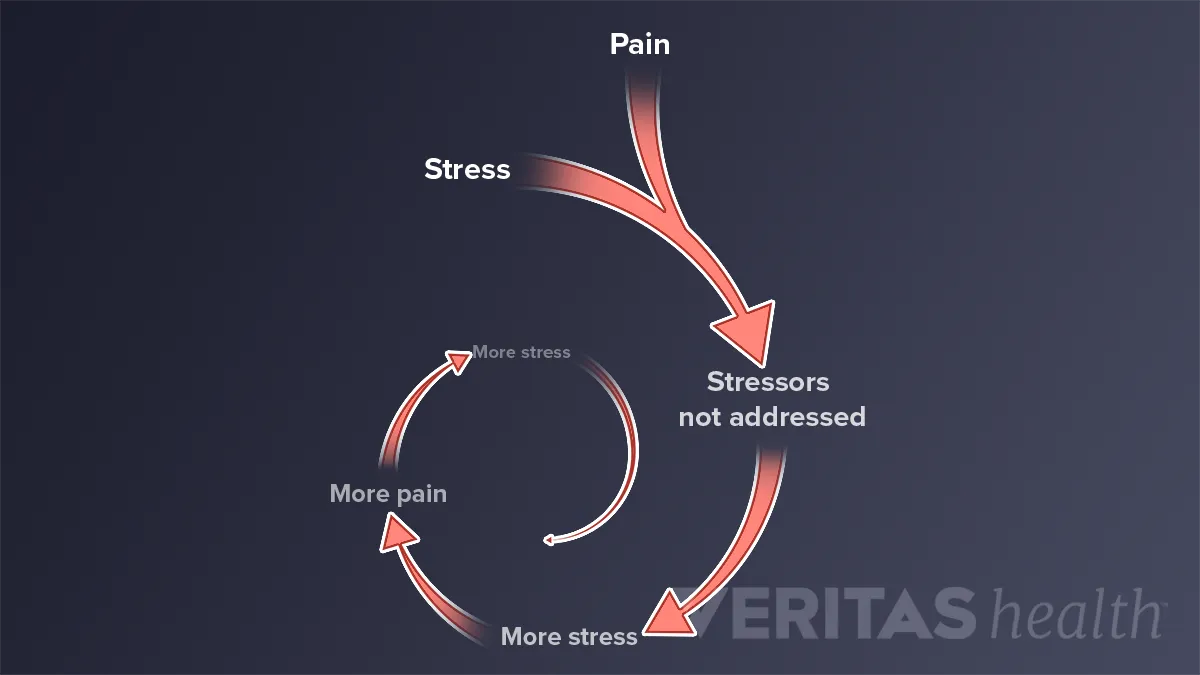Are you experiencing persistent lower back pain that seems to have appeared out of nowhere? Well, the culprit may not be as elusive as you think. In a groundbreaking study, researchers have uncovered a deep connection between the stress we carry and the agonizing discomfort of lower back pain. It turns out that the tension and anxiety we experience daily can manifest physically, wreaking havoc on our bodies. But fear not, this article will uncover the link between stress and lower back pain and provide you with some practical tips to alleviate both. So, brace yourself for a revelation that may just change the way you approach stress management and bid adieu to that irksome backache.
Understanding the Link Between Stress and Lower Back Pain
Lower back pain is a common condition that affects millions of people around the world. It can be caused by various factors, including muscle strains, herniated discs, and spinal degeneration. However, one factor that is often overlooked is the role of stress in contributing to lower back pain. Stress, both psychological and physical, can have a significant impact on the occurrence and severity of lower back pain.

Definition and Causes of Lower Back Pain
Lower back pain refers to discomfort or pain in the lumbar region of the spine, which is located between the bottom of the rib cage and the top of the pelvis. This type of pain can range from mild to severe and can be acute or chronic. There are several causes of lower back pain, including muscle strains, herniated discs, spinal stenosis, and poor posture. Additionally, certain lifestyle factors like obesity, lack of exercise, and improper lifting techniques can also contribute to the development of lower back pain.
Definition and Causes of Stress
Stress is a natural response of the body to external pressures or demands. It can be caused by various factors, such as work-related issues, relationship problems, financial difficulties, or major life changes. When we experience stress, our bodies release stress hormones, such as cortisol, which can have both short-term and long-term effects on our physical and mental health. Chronic stress, in particular, can lead to a range of health problems, including cardiovascular disease, depression, and chronic pain conditions like lower back pain.

Overview of the Link Between Stress and Lower Back Pain
Research suggests that there is a strong link between stress and lower back pain. When we are stressed, our muscles tend to tense up, and our posture may become more slouched or hunched. This increased muscle tension and poor posture can put strain on the muscles and ligaments in the lower back, leading to pain and discomfort. Additionally, stress can also affect our sleep patterns, leading to inadequate rest and further exacerbating lower back pain.
Effects of Stress on Lower Back Pain
Stress can have several effects on lower back pain. Firstly, stress can amplify the perception of pain, making the pain feel more intense and unbearable. This can lead to an increased focus on the pain, which in turn can worsen feelings of stress and anxiety. Secondly, stress can contribute to the development of muscle imbalances and poor posture, which can put additional strain on the lower back muscles and lead to pain. Finally, stress can also interfere with the body’s natural healing process, making it harder for the muscles and ligaments in the lower back to recover from injury or strain.

Psychological Factors Contributing to Lower Back Pain
There are several psychological factors that can contribute to lower back pain. One of the main factors is the presence of chronic stress. When we are stressed, our bodies release stress hormones, which can lead to increased muscle tension and pain sensitivity. Additionally, individuals who have a history of anxiety or depression may be more prone to developing chronic pain conditions, including lower back pain. Mental health issues can also affect our ability to cope with pain and may lead to a higher perception of pain intensity.
Physiological Mechanisms Connecting Stress and Lower Back Pain
The connection between stress and lower back pain is not purely psychological. There are also physiological mechanisms at play. When we experience stress, our bodies release stress hormones like cortisol. These hormones can increase inflammation in the body and reduce the production of natural painkillers called endorphins. This can make the muscles and ligaments in the lower back more susceptible to injury and can also heighten the perception of pain.

Role of Hormones in the Link Between Stress and Lower Back Pain
Hormones play a vital role in the link between stress and lower back pain. When we are stressed, our bodies release stress hormones like cortisol. While cortisol serves an important purpose in helping us cope with stressful situations, chronic or excessive cortisol levels can have negative effects on our health. High cortisol levels can increase inflammation in the body, leading to pain and discomfort. Additionally, cortisol can also contribute to the development of muscle imbalances by promoting the breakdown of muscle tissue.
Effects of Stress on Muscular Tension and Posture
Stress can have a significant impact on muscular tension and posture, which in turn can contribute to lower back pain. When we are stressed, our muscles tend to tense up. This increased muscle tension can lead to muscle imbalances, as certain muscles become overactive while others become weak and stretched. These imbalances can put strain on the muscles and ligaments in the lower back, leading to pain and discomfort. Additionally, stress can also affect our posture, causing us to slouch or hunch over. Poor posture can further exacerbate lower back pain by putting additional stress on the spine and its supporting structures.

Impact of Stress on Sleep and Rest
Stress can also have a significant impact on our sleep and rest, which can indirectly contribute to lower back pain. When we are stressed, our minds may race with worries and concerns, making it difficult to fall asleep or stay asleep. This can lead to inadequate rest and can disrupt the body’s natural healing process. When we don’t get enough sleep, our bodies have a harder time recovering from injury or strain, which can prolong the duration and severity of lower back pain. Additionally, poor sleep can also exacerbate feelings of stress and can create a vicious cycle of pain and sleep disruption.
Coping Strategies for Managing Stress and Lower Back Pain
Managing stress plays a crucial role in alleviating and preventing lower back pain. There are several coping strategies that can help in managing stress and reducing the impact it has on lower back pain. Firstly, practicing relaxation techniques, such as deep breathing, meditation, or yoga, can help to reduce stress levels and promote relaxation of the muscles in the lower back. Regular exercise, such as walking or swimming, can also help to reduce stress and improve overall physical and mental well-being. Additionally, seeking support from friends, family, or a therapist can provide a valuable outlet for expressing emotions and reducing feelings of stress. It is also important to prioritize self-care activities that promote relaxation and stress reduction, such as getting enough sleep, maintaining a healthy diet, and engaging in enjoyable hobbies or activities.
Conclusion
In conclusion, there is a strong link between stress and lower back pain. Understanding and addressing the underlying causes and effects of stress can play a significant role in managing and preventing lower back pain. By incorporating stress management techniques into our daily lives and seeking support when needed, we can reduce the impact that stress has on our physical and mental well-being. Taking steps to manage stress is not only beneficial for reducing lower back pain but also for improving overall quality of life. Remember, your well-being matters, and finding healthy ways to cope with stress can make a world of difference in your journey towards a pain-free life.